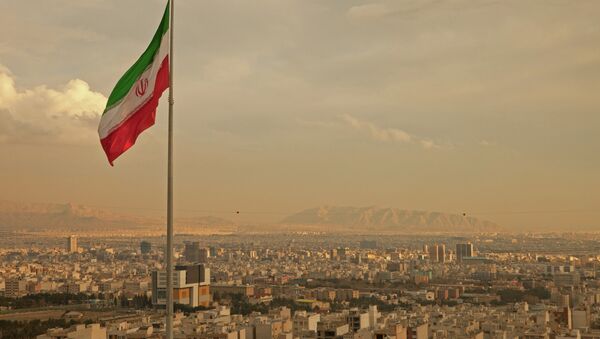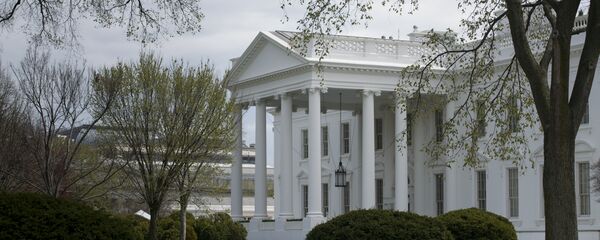WASHINGTON (Sputnik) — On Monday, Trump said the United States might unilaterally withdraw from the nuclear agreement despite the other P5+1 members reaffirming their commitment to and confirming Tehran's compliance with it.
Trump made the threat even though most objective observers believe that the rules of the 2015 agreement are being followed by the Tehran government.
TRUMP WILL NOT ACHIEVE RESULTS HE WANTS FROM IRAN NEW POLICY
The new US policy on Iran will not succeed in forcing Tehran to abandon other policies that the US government finds objectionable, Georgetown University-Qatar School of Foreign Service Center for International and Regional Studies Professor Mehran Kamrava told Sputnik.
"It won't be helpful with regard to reaching the most important goals," Kamrava said. "I am not convinced that they would have the tangible results the United States hopes, namely Iran's severing of ties with Hezbollah, curbing Iran's ballistic missile program and changing Iranian foreign policy objectives."
Trump’s policy was driven not by Iran breaking the terms of the 2015 deal, which it has not, but because both the president and a majority of members of Congress still do not like the 2015 agreement negotiated by then-President Barack Obama and his Secretary of State John Kerry, Kamrava maintained.
"I think both Trump and Congress are eager to impose sanctions on Iran, most of which had not been removed in any case. These sanctions may be limited to the United States, and will still make international banking transactions with Iran quite difficult," he said.
In terms of actual substance, except for the sale of some Boeing passenger planes, US-Iranian trade had not seen precipitous increases after the signing of the nuclear accord in 2015," he said.
Nevertheless, Kamrava said he expected Congress to re-impose sanctions and Trump to approve them.
"Sanctions are inexpensive to impose, make Trump and the Congress look tough on Iran, and are popular. So they will be re-imposed," he said.
It remained unlikely that such measures would have any appreciable effect on changing Iran’s policies, Kamrava cautioned.
"As for whether or not they will work, I am not convinced that they would have the tangible results the US hopes, namely Iran's severing of ties with Hezbollah, curbing Iran's ballistic missile program, and changing Iranian foreign policy objectives in general," he said.
TRUMP POLICY INCREASES RISK OF WAR WITH IRAN
Retired US Army Col. Doug Macgregor agreed that Trump’s new policy would have little to no impact on changing Iran’s policies. But it would greatly increase the dangers of a military clash between the United States and Iran, which might be backed by Russia, he warned.
"Will it lower the threshold for confrontation with Iran? No. It will raise the probability of confrontation with Iran," he said.
Macgregor, a military historian and tactician, warned that the United States was in no position militarily to wage a full-scale war with Iran, especially if Russia supported Tehran and NATO allies refused to join Washington.
"If Iran fights us will Russia help Iran? Yes. Are we prepared militarily to fight a major war against Iran and Russia thousands of miles from our shores, especially when the NATO allies probably won’t support us or sustain us? No," he said.
"Don’t decertify. Let it ride. It’s time for Washington to exercise restraint, work to disengage from Mesopotamia and focus on the home front," he said.
The United States faced far more immediate security threats it needed to prioritize on its land border with Mexico and in the Caribbean region, Macgregor warned.
"What’s happening in the Caribbean Basin and Mexico as well as inside our borders is far, far more important to the American people, especially those of us who voted for Donald Trump," he said.
Last week, Trump announced the US administration's decision not to certify Iran’s compliance with the 2015 nuclear agreement.



